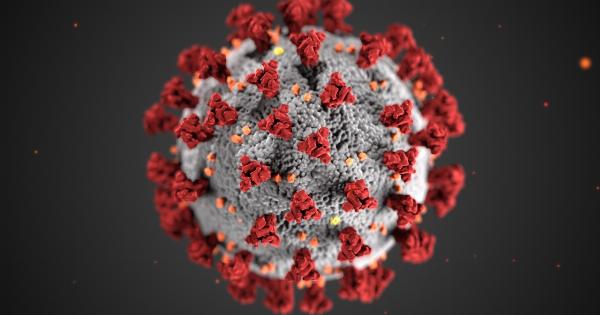Asthma is a respiratory disease that affects millions of people worldwide. It is caused by the inflammation of the airways, making it difficult for the individual to breathe.
The symptoms of asthma include coughing, wheezing, chest tightness, and shortness of breath. Asthma attacks can be triggered by various factors such as air pollution, pollen, exercise, and stress. However, there are two new threats to the asthma sufferers – COVID-19 and wildfire smoke.
COVID-19 and Asthma
The COVID-19 pandemic is a global health crisis that has affected millions of people. COVID-19 is a respiratory illness caused by the SARS-CoV-2 virus. The symptoms of COVID-19 include fever, cough, fatigue, and shortness of breath.
Individuals with underlying health conditions, such as asthma, are at a higher risk of developing severe COVID-19 symptoms, including hospitalization and death.
The reason for those with asthma to be at greater risk is because COVID-19 is a respiratory virus that primarily affects the lungs.
The virus can cause inflammation of the airways, which can exacerbate asthma symptoms and result in a severe asthma attack. Additionally, individuals with asthma may have a weakened immune system, making them more susceptible to COVID-19 infection.
It is essential for individuals with asthma to take extra precautions to reduce their risk of developing severe COVID-19 symptoms. This includes wearing a mask in public settings, practicing social distancing, and washing hands frequently.
Individuals with asthma should also ensure that they have adequate supplies of medication and an asthma action plan that is up to date. If COVID-19 symptoms develop, medical attention should be sought immediately.
Wildfire Smoke and Asthma
Wildfires have become more frequent and severe in recent years, and the resulting smoke can have severe health impacts, especially on individuals with asthma.
Wildfire smoke contains fine particles and gases that can irritate the eyes, nose, throat, and lungs.
Exposure to wildfire smoke can exacerbate asthma symptoms, including coughing, wheezing, and shortness of breath. In severe cases, exposure to wildfire smoke can trigger a severe asthma attack, requiring medical attention.
The elderly, children, pregnant women, and individuals with existing respiratory conditions, such as asthma, are the most susceptible to the adverse effects of wildfire smoke.
It is essential for individuals with asthma living in areas affected by wildfires to reduce their exposure to smoke as much as possible. This includes staying indoors with windows and doors closed, using an air purifier, and avoiding outdoor activities.
If outdoor activities are necessary, it is recommended to wear a mask to filter out the fine particles and gases in the smoke.
Conclusion
Asthma is a respiratory disease that affects millions of people worldwide. COVID-19 and wildfire smoke are two new threats to those living with asthma.
It is essential for individuals with asthma to take extra precautions to reduce their risk of developing severe COVID-19 symptoms and minimizing exposure to wildfire smoke. By following the guidelines and advice provided by healthcare professionals, asthma sufferers can maintain their health and wellbeing during these challenging times.






























